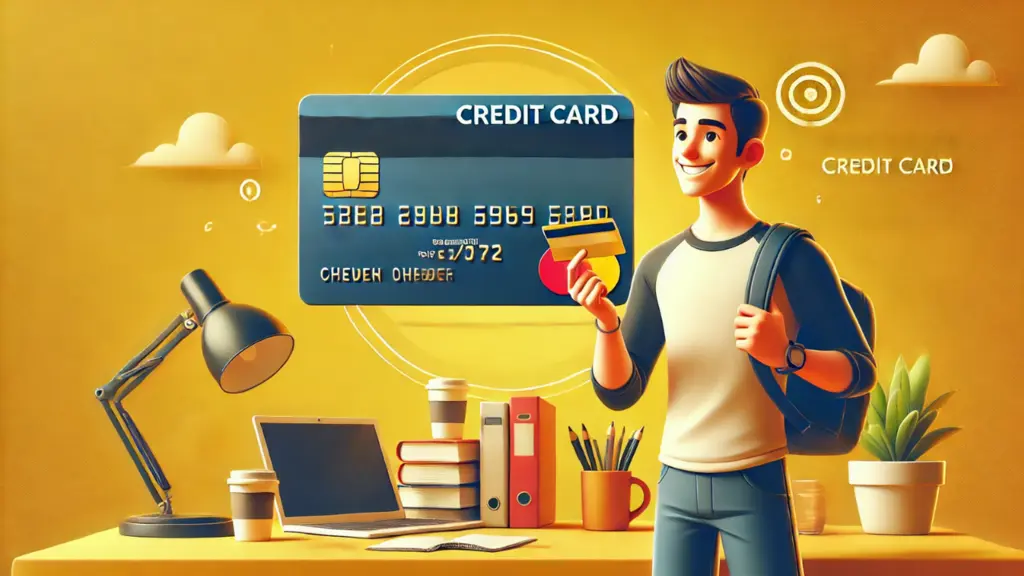Fintechzoom.com Best Student Credit Cards: 5 Options
Fintechzoom.com best student credit cards guide helps young people manage their money successfully. These cards are intended to help students develop credit by providing incentives such as cashback and low interest rates.
We understand how tough it is for rookie students to properly manage their financials and reap the best out of credit cards. That’s why we will share all information about he best student credit cards available and how to choose the right one as per your spending habits.

What Is a Student Credit Card?
A student credit card is intended exclusively for college or university students who are new to credit management. These cards are from regular or Neobanks and they have smaller credit limits. They provide fewer incentives or benefits than ordinary credit cards.
Benefits of Student Credit Cards
- Student credit cards have minimal or no annual fees and some offer perks such as cashback or points on purchases.
- They are an excellent opportunity for students to start learning how to manage their finances and create a favorable credit score.
- They are useful for future financial requirements such as loans or apartment rentals.
Note: To be eligible for a student credit card, students must be enrolled in school and present proof of income or a co-signer.

Things to Look for on Student Credit Cards
To select the finest student credit card, you must first grasp the important aspects that are relevant to your financial goals and habits. Here are the most important criteria to consider while selecting a student credit card.
Interest Rate (APR)
When selecting a student credit card, interest rates should be considered. Many student cards offer 0% introductory APR for the first few months so you can make purchases without paying interest. After the introductory period, the APR can rise so choose a card with a fair regular rate to prevent high interest costs if you carry a balance.
Annual Fees
Annual fees can add additional charges to your credit card so choose one with no or minimal fees. Many student credit cards have no annual charge which makes it easier for students to manage their expenses. Make sure to understand the charge structure since even minor annual fees can build up over time especially if you are just getting started with credit.
Rewards & Cashback
Rewards programs are an excellent way to get money back on ordinary purchases and many student cards provide cashback or points. Depending on your spending habits, a card that pays cashback on categories such as groceries or gas can help you earn money on everyday purchases.
Before selecting a card, evaluate the rewards structure and how easy it is to redeem the points so that the perks are appropriate for your lifestyle.
Credit Limit
Student credit cards have smaller credit limits so you can avoid overspending while developing credit. Lower limitations can appear restrictive but they lessen the risk of debt collection making it easier to maintain your balance. It’s important to get a card that provides a limit meeting your needs while also allowing for progressive increases as you create appropriate credit use.
Credit Building Tools
One key objective of getting a student credit card is to develop credit, so select a card that includes credit-building features. Many student credit cards give you free access to credit scores. This is done so you can track your credit growth.
Introductory Offers
Some student credit cards have introductory offers such as 0% APR for the first few months or sign-up incentives for spending above specific limits. These offers can be useful if you intend to make major purchases early on and wish to avoid interest charges. However, it is important to review the card’s terms after the promotional period has ended to make sure that you are still getting good value in the long run.
5 Fintechzoom.com Best Student Credit Cards

Choosing the correct student credit card is very important for any student to build a solid foundation in finance. Here are some of the best student credit cards in the market:
1) Discover it® Student Cash Back
This card offers 5% cashback on rotating quarterly categories (up to $1,500 in purchases each quarter upon activation) and 1% cashback on all other purchases. There is no annual fee and Discover matches all cash back earned at the end of the first year.
2) Capital One SavorOne Student Cash Rewards Credit Card
It is best for students who eat out and go out to shows. This card offers 3% cashback on dining, entertainment, and grocery shopping. It also features 1% cashback on everything else with no annual fee.
3) Discover it® Student Chrome
This card offers 2% cash back at gas stations and restaurants which is up to $1,000 in combined purchases each quarter upon activation. The card also gives 1% cashback on all other purchases. There’s no annual fee for this card as well.
4) Capital One QuicksilverOne Student Cash Rewards Credit Card
This card gives customers 1.5% cash back on all sorts of purchases and there are no categories to keep track of. The fee is $39 per year but the clear-cut cash-back rate makes this a great option for simple-minded students.
5) Bank of America Travel Rewards Credit Card for Students
It is best for students on the go. The card gets 1.5 points per dollar in all purchases and does not come with an annual fee. Savings can be done for travel expenses and it is best suited for a rewards earner who gets to see where his hard-earned dollars go.
How to Use a Student Credit Card Responsibly?
Using the card responsibly and paying off your balance in time will help you build up your credit history. Start by creating a budget that ensures you only spend what you can afford to pay off each month. Make sure that you always pay on time so there are no late fees and interest costs.
To have a decent credit score, keep your credit use low which is ideally less than 30% of your credit limit. Monitor your expenses and credit card balance regularly and aim to pay more than the minimum payment to help pay off your balance faster.

Don’ts of Using Student Credit Cards
Here are some common mistakes to avoid with student credit cards:
- Carrying a Balance: Failure to pay off your balance in full each month can result in high-interest costs.
- Missing Payments: These can result in late penalties, increased interest rates, and a lower credit score.
- Exceeding Your Credit Limit: Going above your credit limit will lower your credit score and face additional costs.
- Not Monitoring Spending: Overspending or not keeping track of your expenditures can result in a lot of debt.
- Ignoring Your Credit Score: If you do not check your credit score or report regularly, you can miss out on opportunities to enhance it.
Alternatives to Student Credit Cards
Student credit cards are an excellent way to build credit but they are not the only choice. Prepaid debit cards and approved user status can all help to provide financial freedom while also teaching appropriate money management.
Prepaid Debit Cards Are a Debt-Free Option
Prepaid debit cards are a secure option for students who want to manage their spending. These cards allow users to load cash and spend only what is available. This reduces the danger of overspending or much debt. Prepaid debit cards do not help you develop credit, but they are great for learning budgeting and financial discipline.
Secured Credit Cards
Secured credit cards require a cash deposit as security, which is usually equal to the credit limit. Payments are reported to credit bureaus which makes these cards an excellent choice for students wishing to build a credit history. This option is ideal for students who do not qualify for a student credit card due to a limited or no credit history.
Authorized User of a Parent’s Card
Becoming an authorized user on a parent’s or guardian’s credit card allows students to benefit from shared access without taking full financial responsibility. If the principal cardholder manages the account appropriately, the student can improve their credit score. They can do this while still having access to credit when needed.
Experience Financial Ease With FintechZoom
Selecting Fintechzoom.com best student credit cards for your information helps you create credit and manage your money properly. When making a decision, you should check yearly fees, rewards programs, and credit-building features.
By choosing the proper card and using it responsibly, you can set yourself up for a successful financial future.
FAQs
A credit score of 670 to 739 on a scale of 300 to 850 is generally regarded as good. A score of 800 or higher on the same scale is thought to be exceptional.
Yes, you can get a credit card without a job or a wage slip but you must provide other proof of income or a good bank balance.
It is possible to use your entire credit card limit but it is not suggested. Maxing out your credit card can lower your credit score and limit future borrowing possibilities.
